Like any burgeoning industry, the electric vehicle world moves fast, often jumping leaps and bounds in a single year. And 2021 was no different. In fact, the past 12 months may have been one of the most important stretches ever in the development, commitment and adoption of electric vehicles.
Among all the EV stories that came across our news feeds over the past year, a few headlines stood out from the pack thanks to their increased importance and long-term impact. Here are some of the most notable happenings in the EV world in 2021.
Car Makers Pledge EV-Only Lineups
For a stretch of time earlier this year, it seemed as though every week another car maker was pledging its commitment to electric vehicles. Many of these proclamations included promises to transition to an EV-only lineup in the near future.
To kick off 2021, General Motors announced in January its plans to stop producing gas-powered cars by 2035. The following month, Jaguar Land Rover said all its Jaguar models will be electric by 2025, followed by an all-EV lineup of Land Rovers by 2030. In March, Volvo joined the ranks with a pledge to only sell electric cars by 2030. Mercedes made a similar pledge in July, claiming it will be ready to go all electric by the end of the decade.
EV Sales Reach Record High
Sales of EVs have risen steadily over the years, but they’re taking a significant jump upward in 2021. Across the globe, a record 5.6 million passenger electric vehicles are expected to be sold by the end of the year, according to a November report by Bloomberg New Energy Finance. That total would mark an 80% increase over 2020 and a whopping 140% jump from 2019.
Federal Legislation Boosts EV Industry
One reason the Bloomberg report cited for the boost in EV sales is government commitment, and there’s never been a larger investment in the EV industry than the recently passed Infrastructure Bill. Included in the massive piece of legislation is an allocation of $7.5 billion to build out the country’s EV infrastructure. A scarcity of public charging stations has long been one of the major culprits preventing widespread EV adoption.
And even more help could soon be on the way in the form of the Build Back Better Act. The legislation, which is currently being debated in Congress, includes up to $12,500 per vehicle in tax incentives for those purchasing an EV.
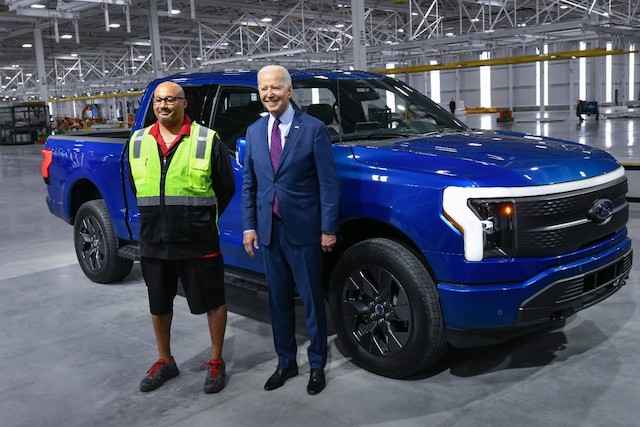
The White House Throws Support Behind EVs
More than any other, 2021 was a banner year for lawmakers pledging their commitment EVs, starting with the highest office in the land. Soon after being sworn into office, President Biden pledged to replace the government fleet with U.S.-made electric vehicles. “The federal government also owns an enormous fleet of vehicles which we’re going to replace with clean, electric vehicles made right here in America by American workers,” he said at the time.
A few months later, the commander in chief signed an executive order setting a goal that by 2030, zero-emission vehicles make up half of all new cars and light trucks sold in the U.S. The latter announcement came after President Biden visited Ford’s Rouge Electric Vehicle Center in Dearborn, Michigan, where it is manufacturing the new all-electric Ford F-150 Lightning pickup truck.
Big Introductions
The EV market welcomed two notable competitors into the field in 2021: Lucid Motors and Rivian. Unlike some other EV newbies, both companies have been around for years, allowing them to accumulate some awfully lofty expectations. It’s safe to say that, so far, both have delivered — and then some.
Lucid, which began in 2007 as a battery manufacturing company, released its highly anticipated electric sedan in the fall. Prior to rolling off the assembly line, the Lucid Air garnered an EPA-certified range of 520 miles. That mark set a new record, beating the nearest competitor (the Tesla Model S) by more than 100 miles. This all came after a summer that saw Lucid become a public company, a move that earned it $4.5 billion in capital.
Speaking of public companies, Rivian’s November initial public offering was one of the biggest of the year, earning the manufacturer a market value of $86 billion. At that price, the upstart company would be worth more than Ford and as much as General Motors. The uptick in excitement over Rivian, which was originally founded in 2009, stems from its recent delivery of the R1T, North America’s first all-electric pickup truck.
See more of the latest and greatest EVs coming in 2022.
Visit AAA’s Electric Vehicle platform for more information on these cars of the future.
18 Thoughts on “The Biggest Electric Vehicle News of 2021”
Leave A Comment
Comments are subject to moderation and may or may not be published at the editor’s discretion. Only comments that are relevant to the article and add value to the Your AAA community will be considered. Comments may be edited for clarity and length.



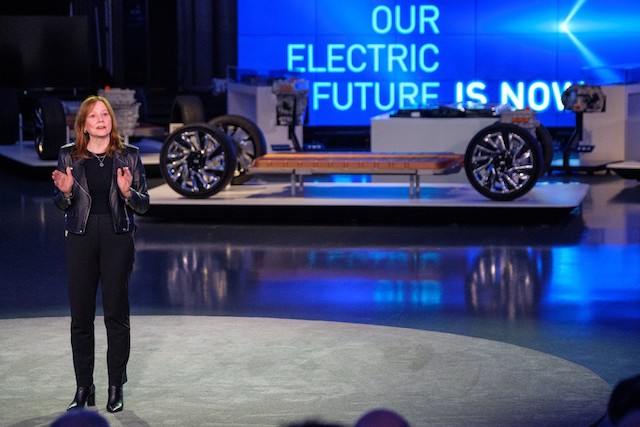
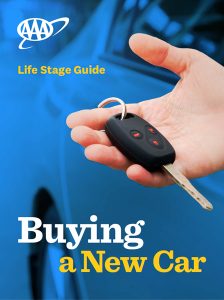

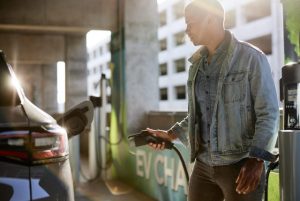
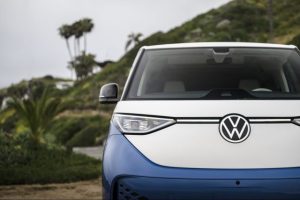
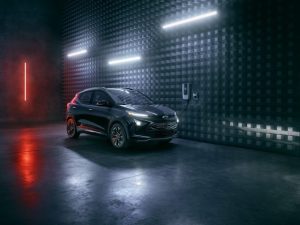








On an EV, you are literally sitting atop the battery pack which means you are constantly getting bombarded with different kinds of radiation emanating from the car components.
This can have adverse health effects if your immunity system is weakened or if you’re exposed for too long a time and regularly.
It has also been shown to make you emotionally unstable by altering your serotonin levels.
I am not an electric car advocate -yet- but the input from K about the adverse health effects of radiation from the electric componants is pure BS. You really think that is less healthy than breathing the exhaust fumes from all of the gas powered cars?
Running an EV on Cape Cod is more expensive than gas.
Good story overall, and as a happy Tesla owner, I’m still glad to hear about other EV options. But, come on — give some props to Tesla. It’s led the way and continues to sell the largest share of EVs in the US, by far. I hope other match and even outdo Tesla in time, but for now, it’s the most important EV car maker out there.
Does the fact that they don’t advertise in news outlets (or anywhere else) lead to this attitude of “let’s do our best to ignore Tesla?” Anyway, you’re doing a disservice to your readers and AAA members.
Two things I’ll add. One, the power grid will more than handle it. The majority of charging is done at night when one is at home — when demand is low and the rates are low as well. Electric companies are offering all sorts of incentives for EV owners, which suggests to me they’re not concerned. Re needing a 220 line: Yes, it’s ideal, but I’ve had a Tesla Model 3 for 2.5 years, charged mainly at home on a marginal 110 plug. Usually added enough (the few times it didn’t, 10 minutes at a Supercharger was all I needed). Needed to upgrade our old electric service panel anyway and when we did recently, I had the 220 line installed. It was a longish run from panel to garage; it cost $1,000. Worth it to me, and a plus when we sell the house someday, but you can live with a regular outlet.
All this EV hype is fine for urban living , get in your EV and travel from NYC to Florida what was once a 18 hour plus trip turns into a three day trip . Tesla just released the Nikola truck in California , now that is huge for the city pollution levels . Trucking companies can have a drop point outside of large cities and have EV trucks run in cities lowering noise and carbon levels to make deliveries . That way this EV system can ease its way in so infrastructure can keep up with the increased demand . The next thing to address is the rest of the world because we can not save it alone !!!
Our power grids have problems handling demands now. We had black out that lasted days, storms that knocked out power for days. How will the electric vehicles be recharged? Can the grid handle all the extra power need when homeowners upgrade their service? Most homes have 100 amp service, that’s not enough to recharge and electric vehicle. What happens to the batteries when their life has ended? We are a long way from replacing gasoline cars with electric vehicles.
Ok, everyone is stating EV are here and the only way to go. What about charging them? If you want to charge at home, you will need an electrician to run a 240/220 40 amp line from you panet to where you want to charge you EV. That assumes you have the capacity in you panel and enough service to handle the draw. You may be faced with running things like AC, Hot Water, Stove or charging you EV.
EV’s may be the way of the future but as a car lover all my life it’s not the same. I want the sound not loud but the rumble of the dual exhaust, the slight vibration, that 4 speed or 5 speed transmission. Remember as kids some of us would attach playing cards to the brackets of the fenders on our bicycles so that as we pedaled and the spokes struck the cards it made us feel like we were driving a car or motorcycle? Remember it’s not the destination, it’s the ride.
Plus the mines containing the materials needed to produce these EV batteries was sold to China!
Ev’s are the future. Problem is politicians and the media are using this to further divide America. Fact is that if ~30% of cars go EV power grids will fail. Already have seen this in California. We need to figure how to power before making this push and the answer is not to shut down our manufacturing and buy from China where they commission a new Coal plant every week that has no pollution control on it. We would do more positive things for our environment today if we pushed for using our own low carbon natural gas to power cars.
It takes between 4-8kWh of input energy to refine a gallon of gasoline from crude oil. That energy could propel an EV for 20-40 miles, before its gasoline equivalent even arrived at the pump.
Electricity can be, and increasingly is, generated via many renewable & green sources, & even when from fossil sources, it’s better done centrally, than liberating energy individually per-vehicle, as with ICEs.
When they first came out, I was not a fan of EV vehicles.Then I said let’s give it a try. I love everything about my Tesla model S. No more engine lights or repairs. No more transmission shifting issues or repairs. No more Loud exhaust noise or repairs. Lastly, no more low oil lights or oil changes. I also love coming up to a Ferrari and get the thumbs up and respect this is because they are very fast! Since, I have had it for a year, I only added windshield washer fluid. Take my advice you will love the EV as I do! Have fun and enjoy this is a wonderful life!
Do you realize how much pollution is caused to generate the electricity needed to power EVs? There will not be any pollution reduction until alternative methods of generating electricity are perfected.
I agree, except it’s easier to control the emissions from one power plant than the tens of thousands vehicles it powers.
This is absolutely not true. I owned an all electric vehicle and charged it with my own solar panels. The only reason I no longer have an all electric vehicle is because I live in a cold climate and slush can sometimes freeze in the wheels and cause problems with steering. Without a combustion engine there is no heat to melt the ice and slush. I now have a plug-in hybrid, but if they fix that freezing problem I would get another in a heartbeat.
Also there are many new solar and wind farms that are taking the place of coal, gas and oil. It is only a matter of time before we catch up to where we need to be to save us from our fossil fuel addictions. the sooner the better.
That statement is a myth and I respectfully disagree with it. Yes, coal and natural gas power plants do create carbon emissions but will eventually become a smaller part of this nation’s overall power supply in the next 30 years. Coal and natural gas will eventually — not completely – be replaced with solar, nuclear, wind and hydro options as the infrastructure is further developed and expanded. Even accounting for carbon emissions, research shows EVs do in fact provide lower levels of greenhouse gas gases than a new gas powered car. Check out the EPA’s website on EV myths: https://www.epa.gov/greenvehicles/electric-vehicle-myths
Electric vehicles are here to stay…As an 80 yr. old I can see myself shopping to get one…Oil and Gas lobbies will have no recourse but to join the majority of America…too much politics involved here on this issue…EV vehicles are here to stay! No amount of BS opposed to EV’s is plausible…I have owned several gas powered Honda’s and the availability for this manufacturer to produce EV’s is already here…I look forward to driving my first EV Honda!